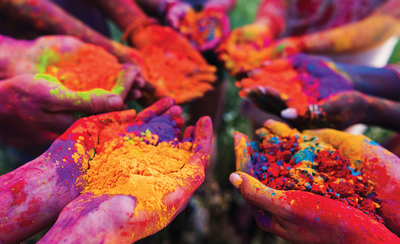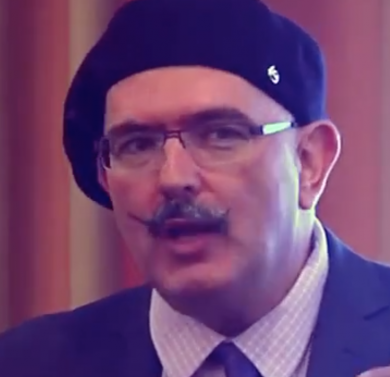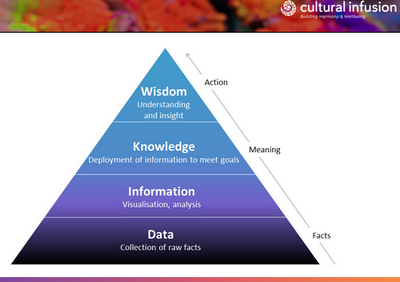| |
spheres, spherons, spheronics,


https://www.diversityatlas.com.au/
------------------------------
Peter Mousaferiadis

Personal page: https://peacefromharmony.org/?cat=en_c&key=1031 --------------------------
Creating cultural harmony https://nfso.campaign-view.com/ua/viewinbrowser?od=3z369717e1db02c324ab12a2028658fe0d10c6e5b695020692ee948b7d07e73b23&rd=11fb25758e9bf3fa&sd=11fb25758e9b382b&n=11699e4bfb62729&mrd=11fb25758e9b3815&m=1 CREATING HARMONY THROUGH INCLUSION Newsletter May 2021 https://www.diversityatlas.com.au/about/ 30 years building global harmony Diversity Atlas is the product of our leadership in intercultural understanding, our expertise in technology, 6 years of research and our commitment to fairness and inclusion. Our story Why we’re here From producing and directing major intercultural productions for the United Nations, the Parliament of World Religions, and the United Religions Initiative, Cultural Infusion’s Founder, Peter Mousaferiadis is an internationally recognised thought leader of culture as a driver of peace and innovation. For over 30 years, Peter has created a lifelong interest and passion to learn from and teach others about culture in many varied forms. Peter founded Cultural Infusion in 2002, whose organisational vision is to help create a world that is culturally harmonious. The business and foundation's mission has been to build global harmony through intercultural action, from delivering a wide range of cultural programs for schools, businesses, governments and partners to running major events and programs that help people better understand and experience the value cultural diversity has in all our lives. Researching the diversity of cultures to create harmony Concerned with the cultural dimension of conflict, with 75% of the world’s conflicts having a cultural dimension according to UNESCO, and with the disruptions that diversity often led to in team communication and performance, we set out to study and understand diversity exhaustively through a process that led to 6 years of research and development and to publish our findings in a scientific journal. The science a thoroughly researched methodology We worked with experts in computer science, cultural anthropology and organisational theory and our partners, the Australian National Commission for UNESCO, the Australian National University and the Dialogue of Civilizations to design a survey that measures diversity in all its complexity and intersectionality, letting individuals share their stories in terms that are meaningful to them. We then developed the world's first diversity data-analytics tool, which we now call Diversity Atlas. What we stand for We work to understand our cultural diversity and build harmony and well being through contributing to a society that: Choose to know your organisation better! Start to look into your organisation´s diversity today. ------------------------ https://www.diversityatlas.com.au/ The Diversity Atlas platform makes it easy for teams and organisations to measure, understand and tell their diversity stories for better inclusion and valuing of their cultural identity. The Diversity Atlas dashboard visualises your organisations and each teams profile, highlighting diversity achievements and where there’s room to improve on inclusion. ----------------------------------- "Diversity Atlas" info@diversityatlas.com.au Dear Diversity, I am the Founder (2005) and Honorary President of the Int peacemaking NGO "Gandhian Global Harmony Association" (more than 600 humanities from more than 50 countries including 5 Nobel Peace Laureates), which createdduring 16 years 10 books of the fundamental social "Global Peace Science of Spherons" on the base of Gandhian nonviolence spherons*/varnas. Our Web: "Peace from Spherons Harmony" is: https://peacefromharmony.org/. Is our diversity interesting for yours? Leo Dr. Leo Semashko https://peacefromharmony.org/?cat=en_c&key=253 08-06-21 * SPHERONS: Harmony Classes, Heart of Global Peace and its Science Center. Primer: https://peacefromharmony.org/?cat=en_c&key=423 --------------------
================== Diversity Atlas is an incredibly versatile tool that provides insight into cultural and demographic diversity like no other, the only holistic tool of its kind on the market. Read this recently published article by our founder to learn about ‘Holistic Data and Its Role in Undoing Racism’ Атлас разнообразия — это невероятно универсальный инструмент, который, как никакой другой, дает представление о культурном и демографическом разнообразии, единственный целостный инструмент такого рода на рынке. Прочтите недавно опубликованную статью нашего основателя, чтобы узнать о «Целостных данных и их роли в искоренении расизма». Holistic Data and Its Role in Undoing Racism By Peter Mousaferiadis April 9, 2024 https://diversityatlas.io/holistic-data-and-its-role-in-undoing-racism/ When it comes to data-driven strategies, holistic data are the leading edge. Since it is now within our technological capacity to collect holistic data, leaders in today’s world must stop relying on selective, compromised data, especially in the area of cultural diversity. Selective data perpetuates racism. I have often written and spoken about why cultural diversity and intercultural competency are increasingly vital for human thriving. Without holistic data, our leaders in the public and private sectors are fumbling their way through our increasingly globalised world, unable to satisfactorily meet the challenges of the moment. But what are holistic data? What Are Data? Let’s take a step back to consider what data are. Data are everything we can quantify. They are a collection of raw facts without meaning. Data only become meaningful once they are sorted into datasets (categories). It is at that point that data convert into information. Where Do Datasets Come From? Datasets come from theories about society. For instance, a theory that states there are only two genders has produced many datasets with just two genders. Today, the ‘gender binary’ is challenged by theories that tell us there are more than two human sexes. As a result, an increasing number of organisations that collect data about gender, including our own, allow for more than two options in their surveys. Most bodies that collect diversity data – I’m thinking of everything from government censuses to Diversity, Equity and Inclusion (DEI) officers – use extremely selective datasets that are often based on outdated categories, the starkest example being the category of ‘race’, which is often touted as a biological fact. I recently spoke about how troubling the reliance on racial categories is among today’s leading AI developers. Why Is ‘Race’ an Outdated Category? Race has no credibility, scientific or otherwise. Racism may be real but race is not. When discrimination occurs against a racialised person there are identifiable and measurable characteristics behind that, which could be ethnicity-based, religion-based, appearance and/or even language-based. These outdated datasets create selective (compromised) data. Newsflash: not everyone categorised as white wants to describe themselves as white. Compromised data lead to compromised information and people filling in the gaps with assumptions that are often shaped by old, sometimes discriminatory ideas from the past (e.g. racist, sexist and ableist). We need granular data to discover what is going on. Holistic data. The Data, Information, Knowledge, Wisdom Model My educational background is in religious studies and music. I never expected to become a big data guy! But now that I understand the importance of data, I am their biggest fan. The diagram below (whose original creator is unknown) shows the progression of data to (we hope) wisdom. 
What this model reveals is how fundamental data are. Without inclusive data, every subsequent step is compromised. What Are Holistic Data? Holistic data are complete data. In the context of human diversity, holistic data are data that have been grouped into highly meaningful categories – categories that reflect the labels that people use to describe themselves. This is why Diversity Atlas is underpinned by the Global Database of Humanity, datasets which comprise more than 42,000 human attributes, including every known (to our expert researchers) language and dialect, secular and non-secular tradition, ethnic group and country of birth, gender, age, sexual orientation, sex at birth, position level, position type and many other dimensions. The Global Database of Humanity enables Diversity Atlas to collect holistic data, which can inform the correlation between experience and identity like never before. I have elsewhere quoted mathematician/theoretical biologist Jared Field, who wrote, ‘I am Gomeroi from the Kamilaroi nation. To say so is to perform real magic. Bit by bit the original labelling [being labelled Aboriginal or Indigenous] is dissolved like aspirin in water.’ I have also quoted Kachin woman Mi Kai Lagwi, who in relation to being lumped into the broad category ‘Mainland Southeast Asian’ in the Australian Census said, ‘It makes me feel like we [do] not exist, and it just makes me feel like we are disappeared.’ Paradigm Shift Many of us have felt dehumanised in some way by a category we’ve been forced into. The ramifications of this are serious. Holistic datasets are achievable and through the power of technology vast amounts of data can be processed with minimal effort.
A paradigm shift is required to embrace emerging technologies that can move us beyond the prevailing deficit models where
we ‘solve’ one side of the Rubik’s cube while neglecting the rest. This is what may finally enable us to see and appreciate each other once more in our constantly shifting relations to each other, beyond any limited concept of identity. The content in this post focuses on part of the keynote ‘Diversified We Grow: Unlocking Diversity in the Age of AI’ delivered at Big Data & AI World, London, March 2024. For more context, a far-ranging post based on this same keynote can be accessed here. --------------------------------------------
Питер Мусафериадис Целостные данные и их роль в искоренении расизма 9 апреля 2024 г. https://diversityatlas.io/holistic-data-and-its-role-in-undoing-racism/ Когда дело доходит до стратегий, основанных на данных, целостные данные являются передовым преимуществом. Поскольку теперь наши технологические возможности позволяют собирать целостные данные, лидеры сегодняшнего мира должны перестать полагаться на выборочные, скомпрометированные данные, особенно в области культурного разнообразия. Выборочные данные увековечивают расизм. Я часто писал и говорил о том, почему культурное разнообразие и межкультурная компетентность становятся все более важными для процветания человечества. Без целостных данных наши лидеры в государственном и частном секторах с трудом прокладывают себе путь в нашем все более глобализированном мире, неспособные удовлетворительно ответить на вызовы момента. Но что такое целостные данные? Что такое данные? Давайте сделаем шаг назад и рассмотрим, что такое данные. Данные — это все, что мы можем измерить. Это набор голых фактов, лишенных смысла. Данные приобретают смысл только после того, как они отсортированы по наборам данных (категориям). Именно в этот момент данные преобразуются в информацию. Откуда берутся наборы данных? Наборы данных основаны на теориях общества. Например, теория, утверждающая, что существует только два пола, привела к созданию множества наборов данных, содержащих всего два пола. Сегодня «гендерная бинарность» подвергается сомнению со стороны теорий, которые говорят нам, что у человека существует более двух полов. В результате все большее число организаций, собирающих данные о гендере, включая нашу собственную, допускают более двух вариантов в своих опросах. Большинство органов, которые собирают данные о многообразии – я имею в виду все, от государственных переписей населения до сотрудников по вопросам разнообразия, равенства и инклюзивности (DEI) – используют чрезвычайно выборочные наборы данных, которые часто основаны на устаревших категориях, самым ярким примером является категория «раса». что часто преподносится как биологический факт. Недавно я говорил о том, насколько тревожной является зависимость от расовых категорий среди сегодняшних ведущих разработчиков ИИ. Почему «раса» — устаревшая категория? Раса не заслуживает доверия, ни научного, ни какого-либо иного. Расизм может быть реальным, но раса — нет. Когда происходит дискриминация расового человека, за этим стоят идентифицируемые и измеримые характеристики, которые могут быть основаны на этнической принадлежности, религии, внешности и/или даже языке. Эти устаревшие наборы данных создают выборочные (скомпрометированные) данные. Срочная новость: не все, кого относят к белым, хотят называть себя белыми. Скомпрометированные данные приводят к компрометации информации, и люди заполняют пробелы предположениями, которые часто сформированы старыми, иногда дискриминационными идеями из прошлого (например, расистскими, сексистскими и эйблистскими). Нам нужны детальные данные, чтобы понять, что происходит. Целостные данные. Модель данных, информации, знаний и мудрости Мое образование связано с религиоведением и музыкой. Я никогда не ожидал, что стану специалистом по большим данным! Но теперь, когда я понимаю важность данных, я их самый большой поклонник. Диаграмма ниже (автор которой неизвестен) показывает развитие данных к (мы надеемся) мудрости.
Эта модель показывает, насколько фундаментальны данные. Без инклюзивных данных каждый последующий шаг оказывается под угрозой. Что такое целостные данные? Холистические данные — это полные данные. В контексте человеческого разнообразия целостные данные — это данные, которые сгруппированы в весьма значимые категории — категории, которые отражают ярлыки, которые люди используют для описания себя. Вот почему Атлас разнообразия подкреплен Глобальной базой данных человечества, наборами данных, которые включают более 42 000 человеческих характеристик, включая все известные (нашим экспертам-исследователям) язык и диалект, светские и светские традиции, этнические группы и страны рождения. пол, возраст, сексуальная ориентация, пол при рождении, уровень должности, тип должности и многие другие параметры. Глобальная база данных человечества позволяет Атласу разнообразия собирать целостные данные, которые могут как никогда раньше определять корреляцию между опытом и идентичностью. В другом месте я цитировал математика и биолога-теоретика Джареда Филда, который писал: «Я Гомерой из народа Камилароев. Сказать так – значит совершить настоящее волшебство. Постепенно первоначальная маркировка [абориген или коренной житель] растворяется, как аспирин в воде». сказал: «Это заставляет меня чувствовать, что мы [не] существуем, и это просто заставляет меня чувствовать, что мы исчезли». Смена парадигмы Многие из нас чувствовали себя в некотором роде дегуманизированными из-за категории, к которой нас принудили. Последствия этого серьезны. Целостные наборы данных достижимы, и благодаря возможностям технологий огромные объемы данных могут быть обработаны с минимальными усилиями. Требуется смена парадигмы, чтобы охватить новые технологии, которые могут вывести нас за рамки преобладающих моделей дефицита, в которых мы «решаем» одну сторону кубика Рубика, игнорируя при этом остальные. Это то, что может, наконец, позволить нам снова увидеть и оценить друг друга в наших постоянно меняющихся отношениях друг к другу, за пределами любого ограниченного понятия идентичности. Содержание этого поста сосредоточено на части основного доклада «Разнообразие: мы растем: раскрытие разнообразия в эпоху искусственного интеллекта», прозвучавшего на конференции BigData & AIWorld, Лондон, март 2024 года. Доступ к ключевому докладу можно получить здесь: https://diversityatlas.io/diversity-in-the-age-of-ai-diversified-we-grow/. -------------------------------------------- Diversity in the Age of AI: Diversified We Grow March 13, 2024 https://diversityatlas.io/diversity-in-the-age-of-ai-diversified-we-grow/.
Up
|